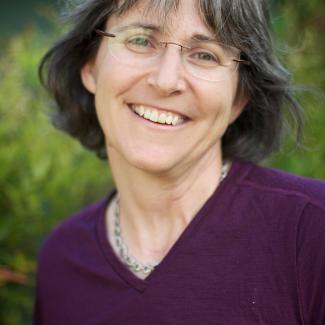
Consensus protocols -- distributed protocols for agreeing on the state of a system in the presence of corruptions and network failures -- are at the core of distributed computing and also provide a foundational building protocol for multi-party cryptographic protocols. The emergence of Bitcoin, and its associated blockchain protocol, has led to an urgent need from the public and industry for new types of consensus protocols that scale to a large number of participants, deal with ever-changing participants, and for some applications (such as Bitcoin) operate in a fully "permissionless" setting (anyone can arbitrarily join and leave the computation).
This workshop will focus on the theoretical foundations of these new desiderata. The main sub-themes are: the theoretical analysis of existing protocols (such as Bitcoin's blockchain protocol) or alternative protocols; the formulation of security goals; the study of game-theoretic challenges that are new to this setting; and the development of practical protocols that address an increasing demand from the public and industry.
Further details about this workshop will be posted in due course. Enquiries may be sent to the organizers at this address.
All events take place in the Calvin Lab auditorium.
Yehuda Afek (Tel Aviv University), Gal Arnon (Weizmann Institute of Science), Sarah Azouvi (UCL), Mathieu Baudet (Facebook/Calibra), Eli Ben-Sasson (Technion - Israel Institute of Technology), Amey Bhangale (The Weizmann Institute of Science), Dan Boneh (Stanford University), Joseph Bonneau (NYU), Jonathan Bootle (IBM Research- Zurich), Benedikt Bünz (Stanford University), Christian Cachin (University of Bern), Jing Chen (Stony Brook University and Algorand Inc.), Alessandro Chiesa (UC Berkeley), George Danezis (UCL and Facebook/Calibra), Vincent Danos (CNRS), Stefan Dziembowski (University of Warsaw), Ittay Eyal (Technion), Georg Fuchsbauer (INRIA), Eli Gafni (UCLA), Chaya Ganesh (Aarhus University), Sergey Gorbunov (University of Waterloo), Prahladh Harsha (TIFR), Zhiguo He (University of Chicago), Maurice Herlihy (Brown University), Justin Holmgren (Princeton University), Yael Kalai (MSR), Eleftherios Kokoris-kogias (EPFL), Jacob Leshno (University of Chicago), Barbara Liskov (MIT), Quanquan Liu (MIT), Yun Lu (University of Edinburgh), Mike Luby (ICSI), Giulio Malavolta (Friedrich-Alexander University (Erlangen-Nürnberg)), David Mazières (Stanford University), Neha Narula (MIT), Kartik Nayak (VMware Research/Duke University), Claudio Orlandi (Aarhus University), Rafael Pass (Cornell University), Oxana Poburinnaya (Boston University), Alex Psomas (Carnegie Mellon University), Tal Rabin (IBM Research), Rajmohan Rajaraman (Northeastern University), Srivatsan Ravi (USC), Omer Reingold (Stanford University), Ling Ren (UIUC and VMware Research), Guy Rothblum (Weizmann Institute), Muli Safra (Tel Aviv University), Amit Sahai (UCLA), Kevin Sekniqi (Cornell University), Srinath Setty (Microsoft Research Redmond), Clara Shikhelman (Tel Aviv University), Alberto Sonnino (University College London), Eran Tromer (Tel Aviv University), David Tse (Stanford University), Muthu Venkitasubramaniam (University of Rochester), Mike Walfish (NYU), Lun Wang (UC Berkeley), Matt Weinberg (Princeton University), Josef Widder (Tendermint/Interchain), Eylon Yogev (Technion - Israel Institute of Technology), Vassilis Zikas (University of Edinburgh)




